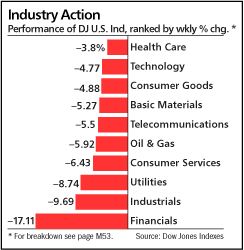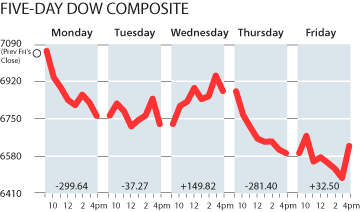US agrees bail-out for Citigroup
By Greg Farrell and Henny Sender in New York and Andrew Ward in Washington
Published: November 24 2008 06:30 Last updated: November 24 2008 13:17
The US government rode to the rescue of Citigroup, entering an agreement to guarantee up to $306bn in problematic assets and inject $20bn in capital to restore confidence in a bank that defines the term “too big to fail”.
The 11th hour transaction, announced just before midnight on Sunday in the US, calls for Citi to absorb the first $29bn in losses it sustains from its portfolio of risky assets – from residential mortgages to commercial real estate and leveraged loans, collateralised debt obligations and auction rate securities. Federal government entities will stand behind 90 per cent of the remaining losses, which could amount to $249bn.
The cost of insuring Citi’s debt almost halved on Monday as the rescue package was seen to lessen the risk of default. Its five-year credit default swap tightened from close to 500 basis points on Friday to 255bp, or $255,000 a year to protect $10m of debt.
The news also sent Citi’s shares in Germany as much as 55 per cent higher at €4.60.
Under the terms of the arrangement, the US Treasury will invest $20bn in Citi preferred stock under the federal government’s troubled asset relief programme (Tarp) and receive dividends at a rate of 8 per cent annually. On top of that amount, Citi is receiving an additional $7bn in return for preferred shares issued to both the Treasury and the Federal Deposit Insurance Corporation for their roles in guaranteeing the risky assets.
In addition to the $27bn capital infusion, the reconstruction of Citi’s balance sheet in effect frees up an additional $13bn, so the total capital benefit to Citi will be $40bn.
Following the agreement Citi promised to cut its dividend to 1 cent a share and to abide by restrictions on certain types of executive compensation.
Gary Crittenden, Citi’s chief financial officer, said that last week’s plunge in the bank’s share price, from $9.36 last Monday to $3.77 at Friday’s close, was “very concerning.” At Friday’s share price, the bank’s market capitalisation stood at a mere $20.5bn, according to Bloomberg.
Subscribe to:
Post Comments (Atom)


No comments:
Post a Comment